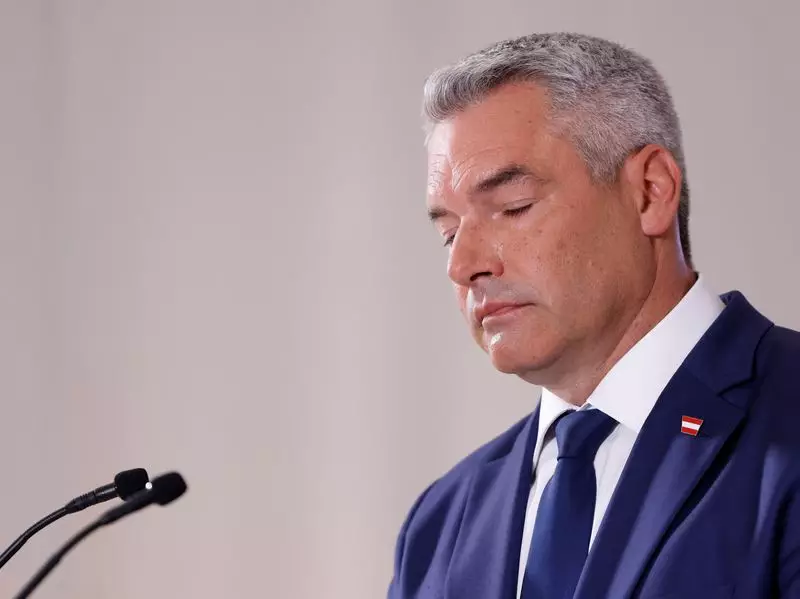In a significant twist in Austria’s political landscape, Chancellor Karl Nehammer has announced his resignation after failed attempts to form a coalition government devoid of the far-right Freedom Party (FPO). This unexpected move, which took place on Saturday, has sent ripples through the governing People’s Party (ÖVP) and the broader political community. Faced with dwindling options, the ÖVP convened a crisis meeting shortly after Nehammer’s announcement to determine a successor, which underscores the gravity of their predicament.
The outcome of this meeting signaled that Christian Stocker, the current party Secretary-General and a seasoned political figure at 64, is stepping up to lead the party in an interim capacity. The seriousness of the crisis becomes clearer: not only does this change reflect internal party dynamics, but it also marks a critical juncture for the ÖVP as it grapples with the fallout from lost coalition talks.
The collapse of recent coalition negotiations illuminates the frail condition of Austria’s centrist governance. After securing the top position in the parliamentary elections held in September, the FPO’s growing strength complicates matters for traditional parties. The President of Austria, Alexander Van der Bellen, now faces a challenging path forward with limited alternatives for forming a stable government. As political analysts assess the implications, they identify two primary scenarios: either a snap election or a contentious coalition with the FPO, led by its leader Herbert Kickl.
Both paths present significant challenges. A snap election poses the risk of further destabilizing the political environment and prolonging the uncertainty surrounding the continuation of effective governance. Conversely, the option of inviting the FPO to join a coalition directly contradicts Nehammer’s previous assertions about the party’s suitability, as he had labeled Kickl’s approach as a security risk, grappling with his conspiracy theories. This contradiction could deeply affect the ÖVP’s credibility among its supporters.
The FPO’s election success is indicative of a broader shift in public sentiment towards nationalist and eurosceptic attitudes in Austria. Garnering nearly 29% of the vote, the FPO not only emerged as a front-runner but is perceived to be growing stronger in the public’s eyes, now leading over the ÖVP and Social Democrats by more than 10 percentage points in various opinion polls. Despite past controversies that devastated their coalition with the ÖVP, many voters are seemingly responsive to the party’s hardline stance on immigration—an area where the two parties have found themselves in ideological alignment.
This evolving dynamic poses a unique conundrum for the ÖVP: historically the dominant entity in Austrian politics, the party now risks being relegated to a junior partner if it were to establish a coalition with the FPO. The power shift encapsulates a fundamental transformation in the Austrian political landscape and could signal a long-term realignment where the far-right becomes more entrenched in governance. This possibility raises pressing questions about the ÖVP’s long-term strategies and its leaders’ willingness to pivot their political alignments.
As the ÖVP goes through this transitional phase, the potential candidates to fill Nehammer’s shoes are broader than initially anticipated. Early speculation included high-profile figures like former party leader Sebastian Kurz, but recent reports indicate that such individuals might not be in contention, thereby opening the floor to lesser-known leaders, such as Wolfgang Hattmannsdorfer, who currently serves as the Secretary-General of the Chamber of Commerce. This shift could mean a fresh approach or further entrenchment of existing policies, based on the incoming leader’s inclinations towards coalition dynamics.
In the immediate term, Austria is at a crossroads. With President Van der Bellen poised to address the nation, the potential ramifications of a coalition with the FPO or an impending snap election loom large, in a decision that will ultimately define Austria’s political trajectory. As the ÖVP grapples with its identity amidst rising far-right influences, the path it chooses may fundamentally reshape not only its future but that of Austria as a whole.

